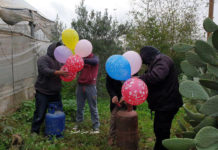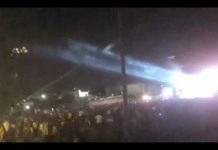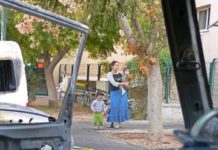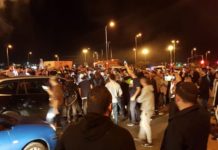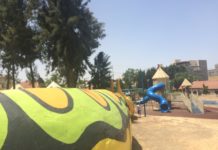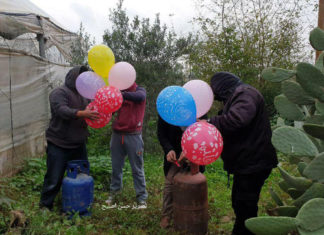
There were two recurring themes during my first visit to London. First, the English don’t do things last minute; and the second went something like this, ‘thank goodness for the ceasefire with Hamas.’
Before I comment on the latter theme, I must point out that one of the most disturbing discoveries during my visit to London was the incredible lack of awareness that most Jewish communities had in regard to the rocket situation in southern Israel. This is not to say that the average Israeli is that much more informed, but Tel Avivim and Raananites are aware of the terms ‘Qassam rockets’ and ‘siren alerts.’ You can thank Ynet.news, Jerusalem Post, Haaretz, and other Israeli news outlets that consistently report when Qassam rockets hits Sderot and the western Negev.
Although the average Brit is well informed of of IDF operations in the Gaza Strip and the plight of Gaza residents, they know nothing of the fear and terror under which Israelis in Sderot and the Western Negev live. This should be surprising, considering that Britain is home to the largest broadcasting media company in the world, the BBC.
However, general picture that the BBC construes for its world wide audience is that Qassam rockets are homemade devices that are inaccurately aimed, children’s toys in comparison to Israeli fighter jets. Comparisons are essential for the international media’s coverage of the Israeli-Arab conflict, especially the British media. The number of Palestinians killed compared to the number of Israelis killed in the western Negev is a point frequently alluded to or made in BBC commentary of the conflict.
Unfortunately, consistent emphasis on numbers and statistics, although they may be true in their own right, do not present an accurate portrayal of the bigger picture. True, Qassam rockets are unsophisticated and cheap to make, but they have also caused wide-spread destruction and heavy psychological turmoil to Israelis living in southern Israel.
Has the BBC ever made an investigative report on the number of mothers in Sderot who must take valium in order to function normally during the day, as sirens and rocket explosions for the past seven years have completely destroyed their sense of calm and security?
What about Sderot children, of whom 70-90 percent now show signs of post-traumatic stress disorder? Or the fact that on an almost weekly basis, a Sderot family becomes homeless because of a Qassam rocket attack. And most importantly, why does the BBC choose not to present the fact that this rocket terror, which is slowly and cruelly wearing down on Sderot and western Negev residents, is financially fueled by Iran, Syria, and Hizbullah?
I recall one visit with a BBC journalist in London, who spoke of her visit to Israel and how she could not understand why there was so much tension between Israelis and Palestinians.
“There is so much misunderstanding and miscommunication between you,” she told me. I answered her with one point.
“You can freely travel to Ramallah, to Gaza, to basically any Arab country neighboring Israel and safely sightsee. I, as a Jewish girl, as an Israeli, would never have that kind of opportunity or right today.”
She never thought of the situation that way. The fact that Israel is surrounded by 22 Arab countries, most who do not recognize the Jewish state’s right to exist and have closed their doors to Jews in general, is a missing component in the international media’s coverage of Israel.
In light of this, Hamas’s recent ceasefire with Israel, is a strategic decision made for the approval of the European and international community and media. Because in writing, Hamas’s English website, still calls for the destruction of the “Zionist enemy,” and does not mention the name of the Jewish state-Israel-even once.
When someone in London asked me if Sderot residents were now celebrating because of the ceasefire, I could only think to myself how uninformed this person was of the real agenda of Hamas. In the week since the ceasefire, four Qassam rockets and two mortar shells have been fired From Gaza at Sderot and the Western Negev. Another Sderot home has been hit, another Israeli family displaced, and several Israelis experienced shock during the rocket explosions. The Qassam fire and mortar shelling against Israel continues today just as it did before the ceasefire began.



